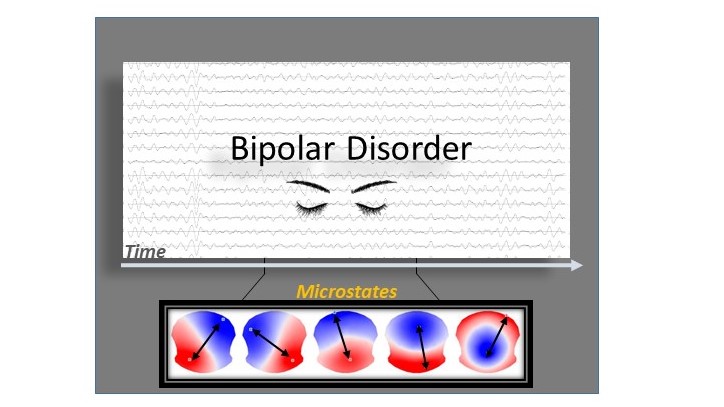New EEG Study on Euthymic Bipolar Disorder Patients
25 November 2019

Bipolar disorder (BD) is a common and severe psychiatric disorder. A better understanding of the underlying pathophysiology is needed to identify objective biomarkers of BD that would improve diagnostic and treatment. Evidence from brain imaging studies consistently points to abnormalities in circuits implicated in emotion regulation and reactivity, but the precise temporal dynamics of the functional brain networks at rest remain to be determined. Numerous studies reported abnormalities in temporal properties of resting-state EEG microstates in neuropsychiatric disorders, suggesting that altered brain network dynamics may represent biomarkers. Only two studies investigated resting-state EEG in BD patients, none of euthymic BD patients.
Thus, for her first last author study, the goal of Cristina Berchio and her colleagues at the University of Geneva was to explore group differences between euthymic patients with BD and healthy controls in terms of resting-state EEG microstate dynamics. They showed that BD patients during remission have altered large-scale brain network dynamics. Moreover, their study identified an EEG signal —the increased presence of “A” microstate— that might be a trait characteristic of BD and used as a non-specific BD biomarker.
Read the original publication here
